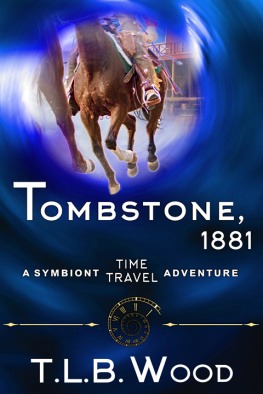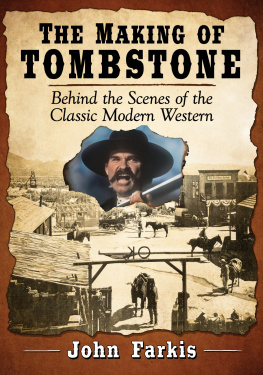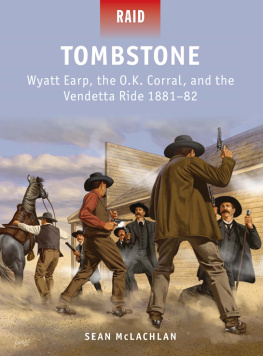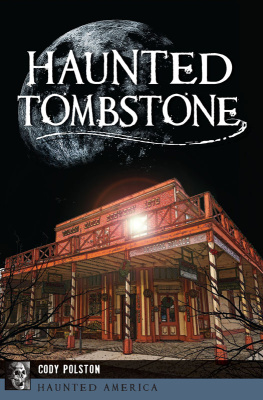Tombstone
A Crimson Worlds Prequel
By Jay Allan
We were pinned down, bracketed by fire from two directions. Somebody screwed up; somebody really screwed the hell up. Now we had to clean up the mess. Now we had to get out of here alive.
I had no idea how we were going to manage that, though. I was crouched behind a slight ridge, and I'd swear I could feel the hyper-velocity rounds streaming by a centimeter over my back. That's nonsense, of course. My armor was sealed tight, and I couldn't feel anything but the cool metal on my slick, sweat-soaked skin. The first thing I felt from outside would tell me my suit was breached, and that would mean I had a few seconds left to live.
Tombstone was one of the most miserable hells where men have ever tried to live, and you could pass the time trying to count all the ways the planet could kill you. Heat, radiation, poisonous atmosphere take your pick. Tombstone wasn't its real name, of course, but that's what the locals have been calling it since 85% of the first colonization party died in less than a month. The place was a nightmare, but the elements in the planet's crust were worth a king's ransom, so men were here to exploit that wealth. And we were here to defend it.
I'd drawn a hell of a mission for my first battle. We came in as reinforcements for depleted units that had already been fighting here. Neither side really controlled the space around the planet, so we'd come in hot in two fast assault ships and made a quick landing. The ride down had been a rough one; I was grateful the only thing Id eaten for 36 hours had come intravenouslyan empty stomach was a big plus. The planet had frequent, unpredictable storms, especially in the upper atmosphere. Not storms like on Earth, but intense, violent, magnetic vortices, with 1,000 kph winds and radioactive metallic hale. Our landing AIs did their best to avoid the worst spots, but the disturbances were unpredictable, and some of our ships dropped right through one of the smaller storms, taking 15% losses before we even hit ground.
This wasnt a normal battle or a smash and grab raid; the situation on Tombstone was unique. Wed had troops fighting here for ten years, almost since the initial colonization. In a few years the Third Frontier War would begin, and before it was over I would fight in massive battles I couldnt have imagined, on worlds all across occupied space. But the engagement on Tombstone was one of those small, unofficial battles the Superpowers so often fought between declared wars.
The planet had been explored by multiple colonization groups more or less simultaneously. Both the Caliphate settlers and ours claimed they were first, and each regarded the other as an invader. The governments, greedy for the planets rare and valuable resources, backed their colonists claims, and so soldiers ended up here, fighting a seemingly endless struggle on one of the deadliest battlefields where men have ever tried to kill each other.
The diplomats and government types would say that the situation on Tombstone was not officially a war, but that was a bureaucrats distinction, meaningless to those sent here to fight. I doubt a bleeding Marine gasping a dying breath of toxic air drew any comfort from the limited status of the engagement. It did, however, starve us of the strength and supplies we needed to win. Neither the Alliance nor the Caliphate were quite ready for full-scale war, so both governments sent enough troops to keep the fight going, but too few to risk serious escalation. It made perfect sense to the politicians, if not to those sent here to fight and die to maintain a perverse status quo.
To a sane mind there were two choices: Fight to win, whatever the consequences, or negotiate and take the best deal you can make. But to those in government there was a third option - maintain a bloody stalemate, sending in just enough force to hold out and not enough to expand the conflict.
But the politics that led to my being here really didnt matter. Not now. What mattered was getting out of this ravine actually more of a gully and doing it without getting blown to bits. Wed been out on a seemingly routine scouting mission. One of the mining operations had reported enemy activity in the area, and the captain sent out a patrol. My platoon was next up in the rotation, so we pulled the duty.
Id been on planet for about a week, but I hadnt seen any action yetthis was my baptism of fire. Ive always thought it would have been easier to draw an assault for a first mission, hitting the ground somewhere and going right into combat without too much time to think about it instead of waiting around for the orders to suit up and go into battle. The idle time was tough, really tough. I had a long and amazing road ahead of me, full of achievement, struggle, and sacrifice. I'd live to wear a general's stars one day and fight alongside friends and against enemies I couldn't have even imagined then. But that was still years in the future - on Tombstone I was a raw private, and I was scared shitless.
I stripped and climbed into my armor, just as the rest of the platoon was doing. It takes long enough to suit up even when your hands arent shaking like mine were. The armor weighs a couple tons, and until the reactor is powered up its almost totally immobile in the rack. Once youve done the prep work and setup, you back into the thing and hold yourself in place while the front closes. Its hard to keep yourself suspended in the open suit, but you only need to do it for a few seconds. At least once my armor was sealed it wasnt so obvious how scared I was.
The thing that surprised me when I first put on my armor in training was how much it hurts. No one had ever mentioned that before. Were Marines, and were supposed to be tough, I guess. So no one wants to admit they notice the pain when they get into their armor. Well, Ill say it; it hurts like hell. The suit recycles your breath, your bodily wastes, your sweat. It monitors every metabolic function and administers nutrition, stimulants, and, if necessary, medications. There are monitors and probes and intravenous links that all attach when you close your armor. And most of them hurt going in.
Tombstone was a long term campaign, and we were billeted in firebases scattered all around the Alliance-controlled sections of the planet, each covering a designated sector. My platoon was stationed with another from our company in base Delta-4, which was dug into the side of a rocky mountain along the edge of a long range of jagged peaks. Wed replaced two platoons that were being rotated out after four months in the line. They were 100 strong when they got here; 41 of them marched out.
We lined up in single file in the ingress/egress tunnel and marched slowly toward the main hatch. The corridor was cut into the rock, which was then coated with a high density polymer that insured the tunnel was airtight, even against the planets corrosive atmosphere. One whiff of Tombstones air was enough to kill you. There was a double airlock system, but only one of our sections at a time fit in the outer chamber, so half the platoon had to wait. My squad was part of the rear group, and we stood around in the inner chamber for a few minutes while the other section marched through the outer airlock. The doors back into the base wouldnt open again until both airlocks were closed tight and the cleansing/decontamination procedure was completed. The contaminants on one Marines untreated armor could endanger the entire installation. Tombstone was no joke.
When we finally got outside we deployed in two long skirmish lines, one positioned about half a klick behind the other. If there was one thing they taught us in training, it was not to bunch up. It makes it too easy to pick us off in groups, and if the enemy decided to go nuclear, they could take out a whole force with one or two warheads.





